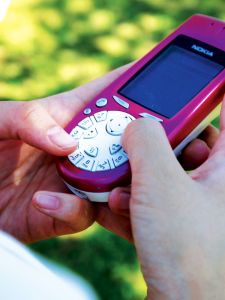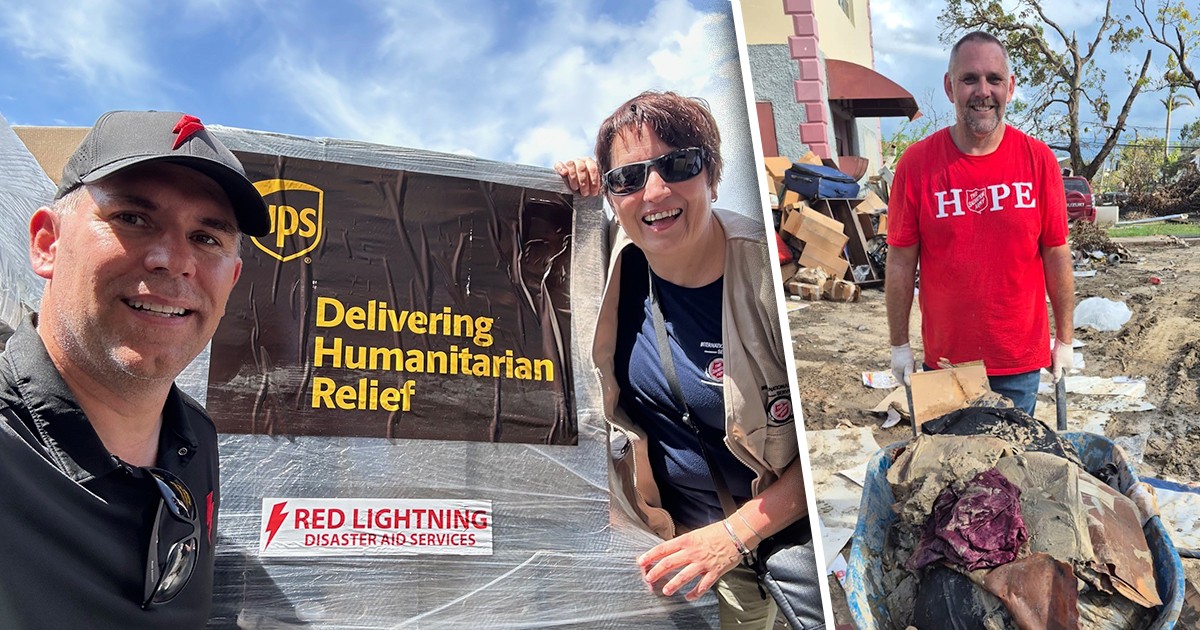 Social commentators for the last 10 years have readily labeled the times in which we are living as postmodern. I wonder, however, if we are not at another turning point in history. Are we also living in post-verbal times?
Social commentators for the last 10 years have readily labeled the times in which we are living as postmodern. I wonder, however, if we are not at another turning point in history. Are we also living in post-verbal times?
The question has been triggered for me in a number ways over the past few months. Our youngest daughter recently received a cell phone for her birthday. A good thing Mom and Dad arranged for the unlimited texting plan! Her first bill racked up over 2,000 text messages in just one month alone! The most amazing thing, however, is the fact that these teenagers can be sitting in the same room and still be texting each other. What has happened to personal conversation? What are we to make of our text-oriented instant messaging society?
Lots of questions come to the surface. For instance, is the ease of technology taking us to places where we will no longer have face-to-face conversations with people? Has our culture become exhausted with the use of spoken words and more importantly personal dialogue? What will communication look like 20 years from now? For example, will our children even have the ability to form a grammatically correct sentence? Will they be able to sit in a room and address a person face-to-face, where situations of conflict require hard and honest conversation, or will our exchange of words only take place in cyberspace?
Further complicating this issue is the growing evolution of internet lingo. When you've got a moment, check it out for yourself online. Thousands of commonly used words and phrases have been reduced to a form of cryptic code to simplify the formation of messages. You can even access your own internet lingo dictionary. In some respects, we can readily understand this reality. If you've taken the time to try and punch out a message on your cell phone or to navigate the miniscule screen on your Blackberry, it's no wonder we are looking for short cuts. Maybe this is a measure of the times in which we are living; we look for the easier way to do things. If there is a short cut that can save time and effort, it becomes the preferred course of action.
What has happened to personal conversation? What are we to make of our text-oriented instant messaging society?
How does this impact the work of building God's kingdom? Can we reduce the Gospel message to a cryptic code and still communicate the immense impact of this life-changing Word we proclaim? Martin Luther King Jr. once said, “We have allowed our technology to outrun our theology.” While he certainly represented another time and place, the statement has relevance today. Is technology redefining our convictions about how we convey that which we believe? Is technology providing positive options for communication or is it sometimes becoming a means of avoidance particularly when it comes to sensitive and difficult conversations? Conversely, are we prepared in this age of advancing technology to sacrifice both the gifts and the growth that can come from intentional verbal contact with another human being?
Putting these thoughts together, I am reminded of an experience I had a couple of weeks ago. Standing at the bedside of a woman who was dying from cancer, I had the opportunity to speak words of hope and consolation. I had the privilege of being physically present to her, to hold her hand as we prayed and perhaps in some way be a tangible reminder of the presence of Christ. Could this same message have been reduced to a cryptic code and still have had the same impact? Was there a form of internet lingo that could have conveyed the same sentiments? I leave you to decide.
The challenge for us today is to continually assess where we have opportunity to use our words in face-to-face communication and how this makes a difference. Maybe we are finding new forms of communication that in the big scheme of life are helpful. But let this not negate the privilege we have to be physically present to people; to look into their eyes and let them see what is truly within our heart. To let them hear our tone of voice and to experience the sincerity and warmth behind the words we speak. Let this generation not be the end of our words, but the reinforcing of our resolve to continue in the Jesus way. I think of the clip John's Gospel gives us at the end of Jesus' encounter with the Samaritan woman. “And because of his words many more became believers. They said to the woman, 'We no longer believe just because what you have said; now we have heard for ourselves, and we know that this man really is the Savior of the world.” (John 4:41-42)
So I'm wondering what you think? Are we losing the impact of spoken words in our time and space? Are we becoming a post-verbal society? Talk to me ... WFYIC (waiting for you in cyberspace)!
 Major Julie Slous is corps officer at Winnipeg's Heritage Park Temple. She also serves as adjunct faculty at the College for Officer Training. In May 2009, Julie completed her doctoral studies in biblical preaching. Her thesis work centred on “Preaching a Disturbing Gospel─The Homiletic of The Salvation Army for Postmodern Times.” When not studying and writing, personal hobbies include reading, cooking, musical composition and, of course, listening to sermons! Married to Brian, she has three children.
Major Julie Slous is corps officer at Winnipeg's Heritage Park Temple. She also serves as adjunct faculty at the College for Officer Training. In May 2009, Julie completed her doctoral studies in biblical preaching. Her thesis work centred on “Preaching a Disturbing Gospel─The Homiletic of The Salvation Army for Postmodern Times.” When not studying and writing, personal hobbies include reading, cooking, musical composition and, of course, listening to sermons! Married to Brian, she has three children.









While I have some issues with this new technological phenomonom, I also see it as a bridge of connection to the younger generation. You're right, the sentence structure and personal, tangible touch may not be there, but if I didn't use this mode of converstaion with them from time to time I may be dealing with another problem; that of not communicating at all. We have thirty teenagers at our youth group who are very involved in this form of communication. I do need to be in the loop or else I'm going to be in trouble!
In spite of all of this,there is a fine line that has to be walked in this discussion. I think that the avid "texters" out there need to be balanced and realize the importance of personal, oral conversations and how these moments have great power and connectivity. Also, those who are more traditional in their communciation approach need to see the value in the new ways and take it for what it is.
Let's face it, Some of us have had actual conversations with people without truly connecting with them. In other words, it's just small talk or going through the motions. Only this week, I received a text message from one of our teenagers at the Corps who thanked Lesley and I for taking her and her friends out for dinner. I could tell from that simple message that Nikayla truly appreciated what we did and a text message was her way of letting us know.
All in all, I agree with your thoughts on this subject Julie but I feel we have to take a balanced approach.
Over and Out!